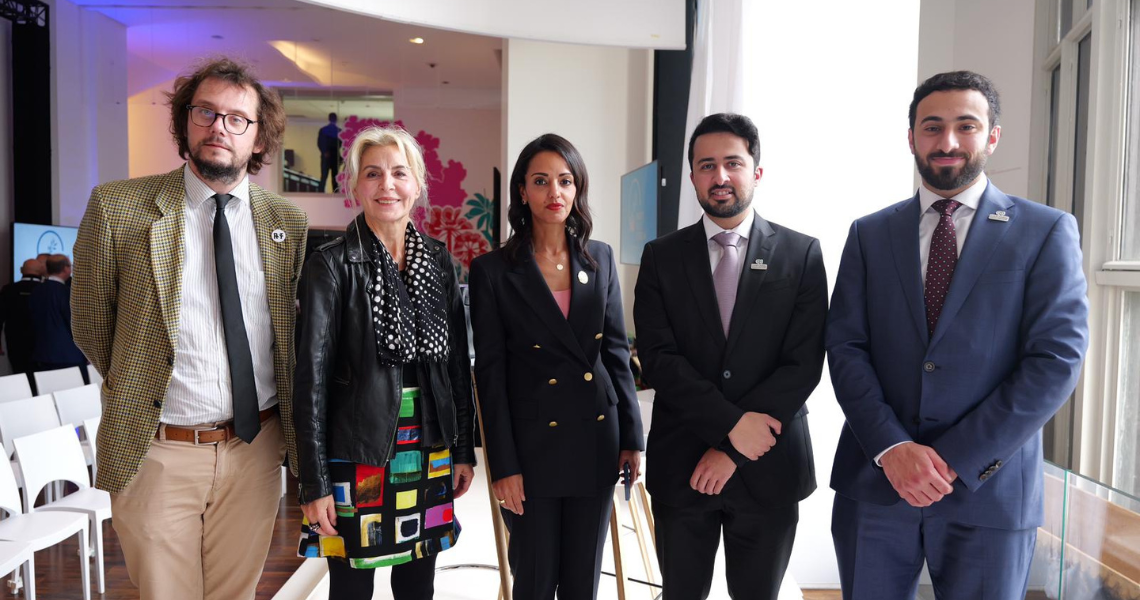QatarDebate examined the transformative yet paradoxical role of digital platforms in today’s global conflicts during a landmark panel discussion titled “Mediator or Firestarter? The Dual Role of Digital Media in Conflict Resolution” at the eighth Paris Peace Forum. Held at the Musée de l’Homme and Musée de la Marine, the session brought together global experts to explore how digital media, while vital for peacebuilding, can also fuel division and polarization.
Moderated by Ahmad Al-Naimi, QatarDebate’s Chief Envoy, the panel addressed the complexities of digital media’s dual nature and its essential contribution to global conflict resolution efforts.
“Digital media is both a powerful tool for peace and a battleground for manipulation,” Al-Naimi cautioned.
On one hand, platforms such as social media and digital news outlets have the potential to expose hidden truths and amplify marginalized voices, making the invisible visible. On the other hand, these platforms are often exploited to spread misinformation, reinforce biases, and suppress free speech.
“The challenge is ensuring that it serves as a force for resolution rather than division," argued Al-Naimi, a seasoned policy strategist with extensive experience in international relations.
Drawing on his experience representing Qatar at the UN General Assembly, the ECOSOC Youth Forum, and the World Economic Forum in Davos, Al-Naimi framed the conversation around the critical importance of global cooperation to safeguard truth and accountability online.
The discussion centered on finding strategies to ensure digital media remains a force for peace and conflict resolution, rather than becoming a catalyst for further polarization.
Sawsan Chebli, former Berlin State Secretary for Civic and International Affairs, emphasized that digital media has become one of the most powerful tools for shaping narratives, mobilizing communities, and driving change. “For many around the world, digital platforms are not just channels of communication; they are lifelines that keep human stories alive when global attention fades,” she said.
Yet, Chebli cautioned, there is another side to the coin. “Take Gaza, for instance. On one hand, social media serves as an existential lifeline and a force that has ignited a global awakening and mobilized millions. On the other, we are witnessing how voices are silenced and content suppressed through deranking and shadowbanning.”
In a nutshell, social media holds the promise of being a space for dialogue and reconciliation but it also determines whose pain is amplified and whose is forgotten, Chebli concludes.
The panel was part of the broader Paris Peace Forum, which focused on “New Coalitions for Peace, People, and the Planet” in 2025. The Forum, now in its 10th year, highlighted the urgency of multilateral collaboration on global challenges such as climate action and international peacebuilding. It also marked the 10th anniversary of the Paris Agreement, reinforcing the commitment to sustainable global action.
By co-organizing the session on digital media, QatarDebate reaffirmed its commitment to fostering meaningful dialogue, critical thinking, and youth engagement on global issues.
“Through events like today’s panel, Qatar Debate amplifies youth voices and offers tomorrow’s leaders the opportunity to engage global experts to find solutions to the most pressing challenges,” said Abdulrahman Al-Subaie, Programs Director at Qatar Debate.
The panel underscored the potential of digital media to bridge divides, elevate underrepresented voices, and advance peace and stability worldwide.
Through its global outreach and advocacy efforts, QatarDebate continues to lead in shaping informed, action-oriented debates that align with the Paris Peace Forum’s core goals of inclusivity, collaboration, and sustainable solutions.
The panel reaffirmed QatarDebate’s vision of leveraging informed debate and digital media to address pressing global issues in a responsible and constructive manner.



